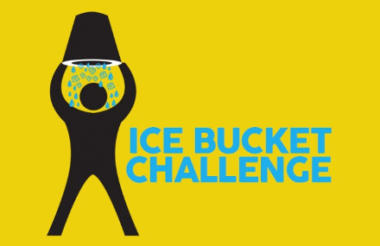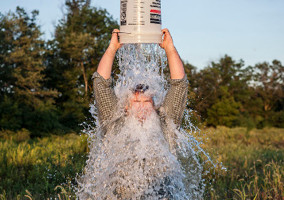With one survey out last week indicating that more than half of the people taking part in the #icebucketchallenge did not go on to donate, Kirsty Weakley asks whether it's time for charities to cool their enthusiasm for the craze.
A family member nominated me to do the ice bucket challenge, and while my brother’s obvious glee at the prospect of getting to throw ice over me was almost enough to prompt an outright refusal, I have to admit I did consider taking part, nominating others and making a donation to a charity I knew very little about.
But as someone who spends a lot of time reading charity accounts I’m fully aware that donating to a charity I’d never really heard of without doing at least a little bit of research is irresponsible.
Just because I’ve been tagged in a Facebook post, why should I check the Charity Commission’s site to make sure I agree with the charity’s aims and objectives and read their accounts to make sure I’m confident that my donation will be put to good use? Normally when friends badger you for donations it’s for a cause that they believe in – they can explain at length what impact your donation will have. Not this time; this time I was just told to take part.
I do my bit for charity. I give monthly, I donate to emergency appeals, I chuck money in collection tins and more. I just don’t post a message on Facebook or Twitter every time I do, insisting three of my friends follow my lead.
Maybe I should. Though I doubt images of completed direct debit forms is going to ‘go viral’ – screenshots of ‘thank you for signing up’ messages just aren’t as much fun as videos of people getting soaked.
The social media challenge has become the modern-day equivalent of the chain-mail letter, and while I applaud that instead of avoiding seven years' bad luck (or whatever superstitious drivel failure to comply entailed) it now involves a few charities raising money, the peer-pressuring factor is the same, and I for one refuse to have any part in it.
That doesn't mean that I don't admire people, inlcuding Civil Society News' own David Ainsworth (pictured) who took part in the challenge - fully branded in the MND Association t-shirt - who genuinely are raising much-needed awareness and money for charity. And charities should absolutely be making the most of it while it lasts but, but by their nature viral social campaigns cannot be predicted and therefore relied upon as a solution to funding cuts.
Has #icebucketchallenge has lost sight of its original fundraising aim?
There’s no doubt that the £3m raised for the MND Association will be transformative for that charity, and that the 145 other charities that have seen donations rise as a result of the craze, according to Justgiving, have had an unexpected boost to their income. But I doubt that there will be much of a lasting impact for the sector as a whole.
The problem is that the challenge has become bigger than the cause. Maybe charities should step back and let the craze fizzle out? The number of people who didn’t donate after taking part - 56 per cent according to a poll by vouchercodespro.co.uk - indicates that unlike the #nomakeupselfie craze earlier this year which was very focused on raising money for cancer charities, the link between the challenge and the donation has been broken. From my own Facebook feed I’ve noticed people are placing less emphasis on whether they have given money to charity, which charity and why.
Another, perhaps more worrying statistic was that less than half of those who took part were doing so to raise awareness for the charity, with a significant proportion (almost 40 per cent) saying that they just wanted to look good on social media. They hardly sound like the type of people who are going to become long-term supporters and champions for the cause.
Like other social media crazes this will pass, and the growing lack of clarity around the causes that are (or should be) supported means that when the world has moved on there won’t be much of a legacy left for them.
Related articles











